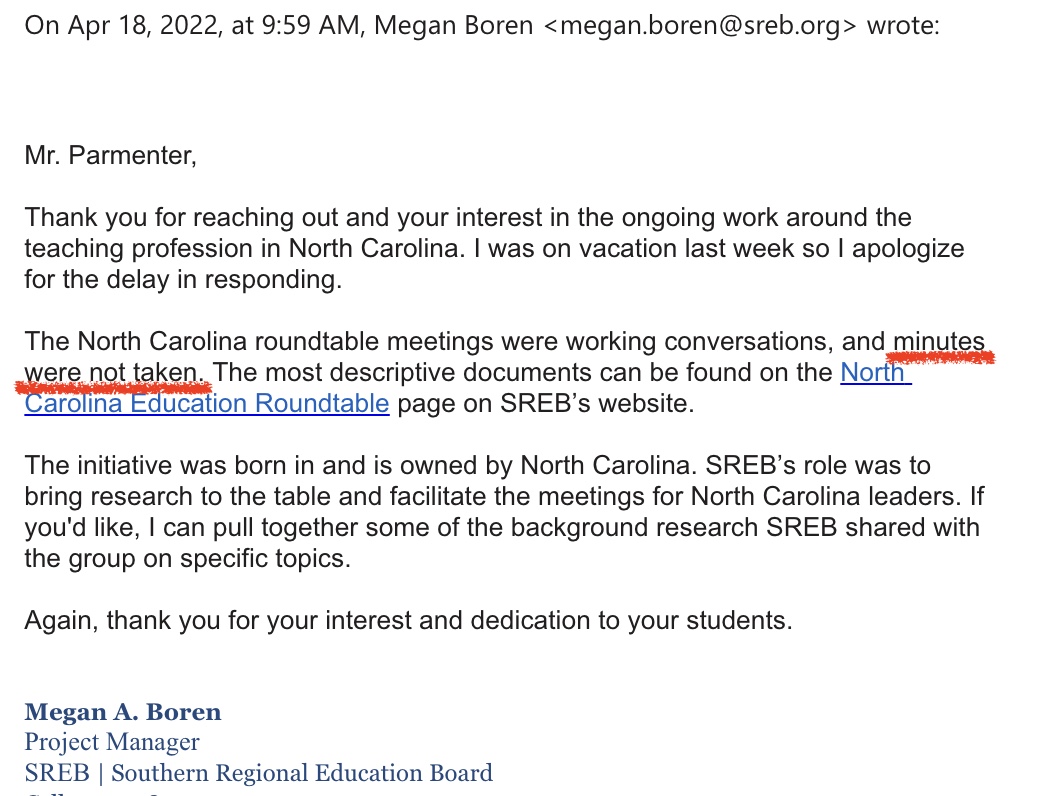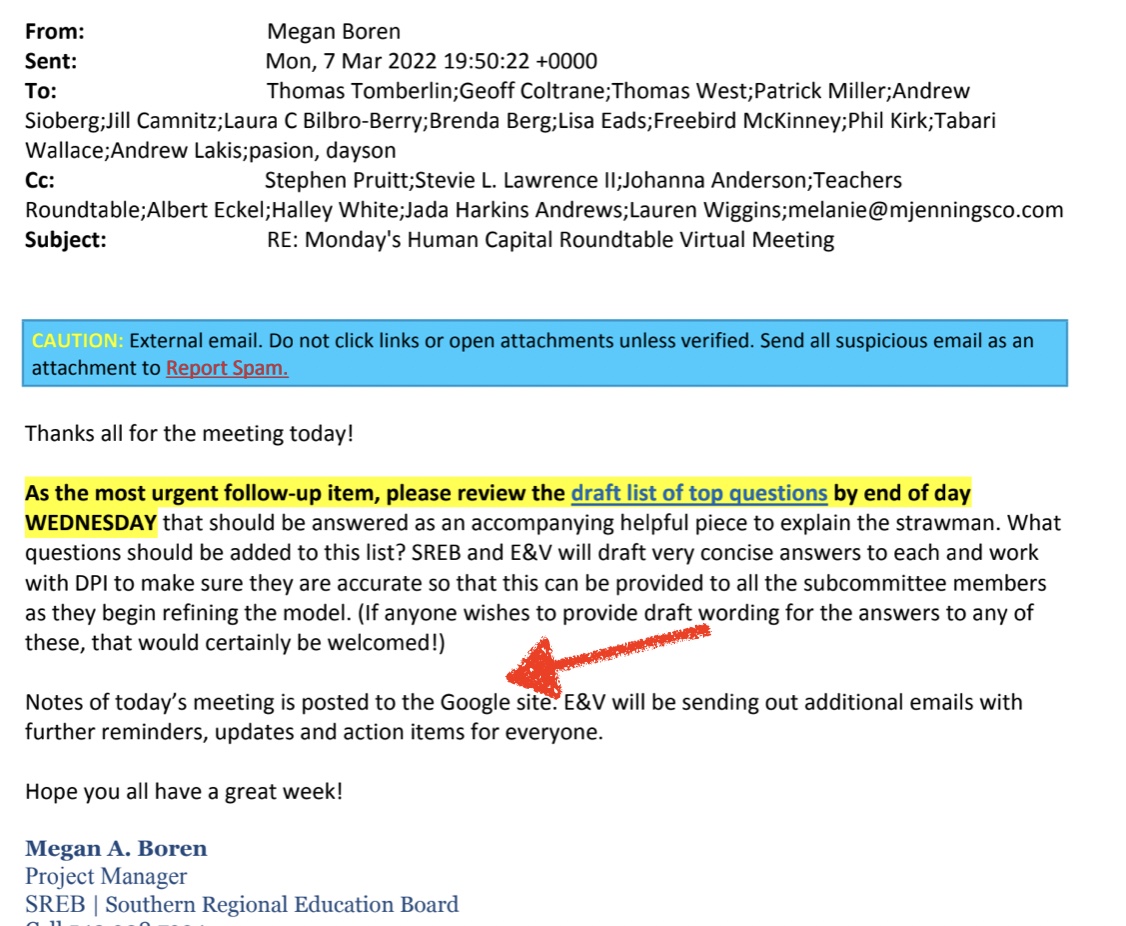
Today’s merit public records release is about the Human Capital Roundtable (HCR), the group that created and spent two years working on the merit pay plan behind closed doors.
#nced #ncpol #ncga #pepsc
#nced #ncpol #ncga #pepsc
Under the facilitation of @srebeducation, HCR began meeting in early 2019, not long after the NCGA created PEPSC. There was no public notice of HCR meetings, no recordings posted, and no agendas, minutes or any other documentation made publicly available.
In early 2021 the Human Capital Roundtable made a presentation to the State Board of Education which proposed seven levels of licensure and language indicating teachers had to demonstrate effectiveness to move up in the model. 



Just a few weeks after HCR’s presentation, PEPSC subcommittees began working on the project, using HCR’s flow chart (of course) as their road map. Over the past year plus they have continued to add detail to the proposal but have never deviated from HCR’s basic recommendations 

I am very curious to know more about the Human Capital Roundtable’s work. Who was in those initial meetings? How did the conversations unfold which led to this proposal that we should scrap our current experience-based pay scale and replace it with merit pay?
In early April I reached out to DPI to request any related records. DPI said they had no affiliation with HCR and could not help. They suggested I reach out to HCR directly. I contacted PEPSC chair Miller, who served on HCR. He directed me to SREB Project Manager Megan Boren. 



When I asked Ms. Boren for minutes, she told me “minutes were not taken.” Shortly after that I found an email she had sent HCR members which said “Notes of today’s meeting is posted to the Google site.” So the records definitely exist. SREB just doesn’t want to provide them. 



In another email I received via records request from DPI, @EducationNC reporter @agranadoster had asked Boren to attend a Human Capital Roundtable meeting.
Granados's request notes “...the Human Capital Roundtable could be making decisions that impact the licensure plan without the public being able to see how those decisions are being made. We would appreciate being present to inform the public.” 

Ms. Boren told Granados that “roundtable meetings have been open only to the members as working sessions, with just a few guests by invitation” and denied his request. 

North Carolina has laws which are supposed to guarantee transparency in how government functions. One of them is our public records law and another is open meetings law. This is an English teacher’s explanation, so attorneys feel free to correct me...
...but essentially they hold that if a public body is conducting official business, their meetings must be open and all documents and communications related to that work must be furnished to the public upon request.
The Southern Regional Education Board maintains a whole Google site of documents for members of the Human Capital Roundtable which are hidden from public view. That site includes the meeting notes Ms. Boren told me did not exist. Here’s the link:
sites.google.com/view/nc-hcr/me…
sites.google.com/view/nc-hcr/me…
As a body including an appointed official (SBE’s Jill Camnitz), chair of PEPSC (Patrick Miller) and high-ranking employees of the Department of Public Instruction (Tom Tomberlin, Andrew Sioberg), Human Capital Roundtable’s meeting during the work day to craft public policy...
...HCR’s meetings should have been open. It’s too late for that now.
However, it’s not too late for @srebeducation to make available all of the documents from the Human Capital Roundtable’s work in accordance with North Carolina state law.
However, it’s not too late for @srebeducation to make available all of the documents from the Human Capital Roundtable’s work in accordance with North Carolina state law.
I sent Ms. Boren a follow up email last week asking for just that. I will keep the public posted on any further developments.
#nced #ncpol #pepsc
#nced #ncpol #pepsc

(NC legislators cc'd on the email serve on SREB's Legislative Advisory Council)
sreb.org/post/north-car…
sreb.org/post/north-car…
• • •
Missing some Tweet in this thread? You can try to
force a refresh




